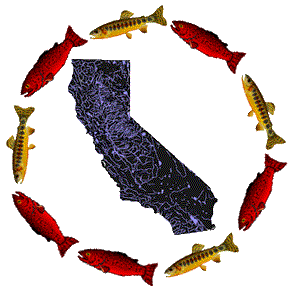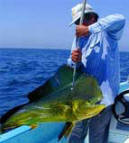CSPA |
| Your 501(c)(3) tax deductible cash donations are desperately needed if the fight for our fisheries is to continue. Read how you can donate! |

 More News
More News
![]()
| Mexican 'Fishing Mafia' Busted From The Fishing Wire | ||
 | September 19, 2008 -- Three recent seizures of tons of illegally harvested dorado (also known as mahi-mahi, dolphinfish or goldenmakerel) has sportfishing officials in the United States and Mexico applauding not only the enforcement efforts of officials, but their willingness to buck a system that has apparently allowed the illegal harvesting to go on unmolested for years. Reserved for sportfishing only, Dorado have apparently been considered fair game by Mexico's "fish mafia". On August 13, a vessel with nearly a ton and a half of dorado was seized north of Loreto, Mexico. Dorado is a species designated strictly for sportfishing and banned from long-lining or netting. | |
On September 5, two more boats were seized and charged with illegally harvesting dorado on a shark permit in Magdelena Bay. This was a significant bust for two reasons, officials say. First, the two vessels were carrying fourteen tons of dorado and several tons of shark. More importantly, the vessels belonged to commercial longliner Henry Collard. Collard owns a significant commercial fleet, but has also been regarded as part of the Mexican "fishing mafia" and "commercial pirates" which have been carrying out illegal harvests for years. Collard, it seems, didn't do much to help his own case, threatening the fisheries enforcement agents that he was a personal friend of Ramon Corral. Corral is the head of the Mexican fishing agency CONAPESCA and has been widely regarded as "tainted" due to his support of a regulation that attempted to allow the "incidental harvest" of billfish, dorado and other species within Mexico's conservation zones. Apparently, critics said, Corral and his friend Collard hold a pretty liberal position regarding "incidental harvests." Investigations are also underway by U.S. and Mexican officials regarding the transportation of hundreds of tons of the illegal dorado catches from the Port of Guaymas into Arizona through Nogales, and into California through Tijuana. The Billfish Federation, one of the organizations that worked to put a stop to the practices, is applauding the efforts of the officials and local enforcement officers that resulted in the seizures. Says TBF President Ellen Peel, "Apparently the recent interest of U.S. enforcement officials in the import of illegally caught dorado has persuaded CONAPESCA that they need to concede TBF's position that there is no basis in Mexican law to allow bycatch in the conservation zones and enforce the federal fisheries law." Dr. Russell S. Nelson, TBF's Chief Scientist, says the increased enforcement against illegal fishing activities in and around the Baja Conservation Triangle has been the first priority for funding FONMAR, the trust created in 2005 by TBF and its Mexican conservation partners. Working with governments worldwide The Billfish Foundation advances the conservation of billfish and associated species to improve the health of oceans and economics. Since 2002, TBF has been working in the "triangle" an area bounded by Los Cabos, La Paz and Magdelena (Mag) Bay in the southern Baja peninsula. It appears those efforts are starting to pay off. | ||